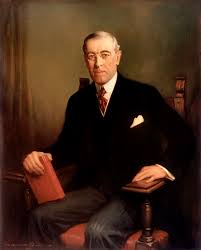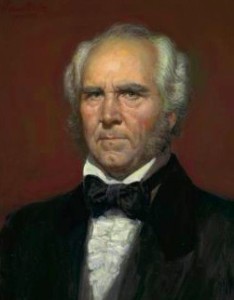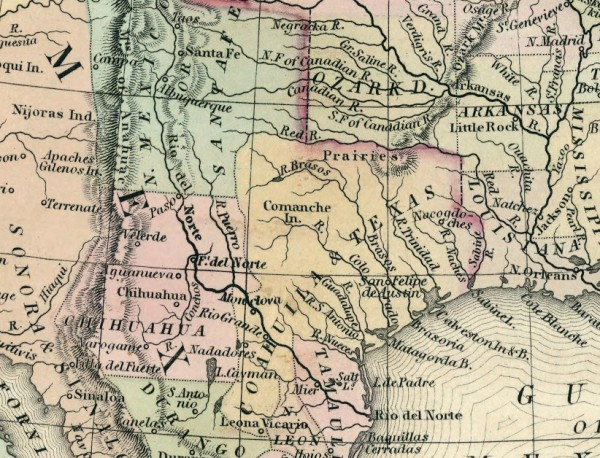– 31 July 2015 –
Barzillai “19th Century” Bozarth:
 The following is quoted from the Reverend C. Newell’s History of the Revolution in Texas, published in 1838, only two years after Texas won her independence.
The following is quoted from the Reverend C. Newell’s History of the Revolution in Texas, published in 1838, only two years after Texas won her independence.
With an unabashed bias in favor of the Texan position, Newell describes the goals of the Mexican government in opening up Texas to American settlement:
The leading object of the Mexican Government in allowing the Colonization of Texas, was undoubtedly the protection of her frontiers from the hostile incursions of the Indians. The Camanches and other tribes had waged a constant and ruinous warfare against the Spanish settlements at Bexar and Goliad, on the Western limits of Texas, and had extended their ravages also beyond the Rio Grande. Mexico, even under the government of Old Spain, had been unable to subdue or restrain them, and she would have had to abandon Texas altogether, if not other parts of her territory, had she not found a hard people, willing, for the sake of a small portion of her soil, to go in and subdue them.
Another object which Mexico had in view, in opening Texas to Colonization, was evidently the increase of her national wealth and strength by the settlement of a rich portion of her territory by industrious and enterprising foreigners, which she knew could never be subdued and settled by her own people.
In addition to this, Mexico was probably stimulated somewhat by the example of the liberal and successful plan adopted by the United States of the North, in respect to the emigration of foreigners into her territory, as she had previously been, by the successful revolution of those States, excited to throw off the Spanish yoke.
The conditions of the grant of the Colonization of Texas were, on the part of Mexico, that the families introduced should be limited in number—at first to 300; that they should be families from Louisiana, and Catholics, being hence of Spanish and French descent; that they should build churches, support schools and the Catholic religion and particularly have their children taught the Spanish language. These conditions are especially worthy of notice, as affording evidence that the Government of Mexico contemplated the ultimate amalgamation of her foreign emigrants with her own people, and thus securing the integrity of her territory and dominion.
Modern history books would suggest that Mexico foolishly and myopically allowed the mass settlement of Anglo-Americans into Texas. Such a description leads one to the conclude that the government of Mexico was so incompetent and corrupt that it could not foresee that the settlement of vast numbers of Americans, in territory bordering the expansionist United States, could only lead that section of their country to attempt to break from Mexico in the future, possibly to join the U.S.A., or to the latter invading Mexico with the intent to annex an Anglo-American Texas.
But it didn’t start out that way. A sensible policy for the limited settlement of compatible Americans to Texas led almost immediately to a flood of immigrants so large that the Mexican government found itself, within a single decade, struggling to control the situation.
The caution that Mexico showed in allowing even such a small and targeted population to immigrate demonstrates how a nation’s immigration policies can unintentionally grow out of control if not strictly regulated. It is historically ironic that the United States is poised to lose the American Southwest through the same process by which she won it.
Newell, C., History of the Revolution in Texas Particularly of the War of 1835 & ’36 Together With the Latest Geographical, Topographical, and Statistical Accounts of the Country, 14-15. New York: Wiley & Putnam, 1838.

 When of one mind, Janus' views
form a composite of his two main sides. He attempts to consider issues with care and thoughtfulness, though he remains biased towards Christianity and Western
traditions. Outsiders might call him a Conservative, but in fact he is a Fundamentalist in that he promotes the Christian values that raised Western civilization to its peak.
When of one mind, Janus' views
form a composite of his two main sides. He attempts to consider issues with care and thoughtfulness, though he remains biased towards Christianity and Western
traditions. Outsiders might call him a Conservative, but in fact he is a Fundamentalist in that he promotes the Christian values that raised Western civilization to its peak. Tending to sensationalize, and sometimes to hyperbolize, C. F. van Niekerk over-analyzes any number of subjects from mundane minutiae to the great philosophical questions of life itself.
Tending to sensationalize, and sometimes to hyperbolize, C. F. van Niekerk over-analyzes any number of subjects from mundane minutiae to the great philosophical questions of life itself. Katáxiros, the parched one, alone and adrift at sea, yet ever rowing ahead anyhow, sometimes weakly and sometimes vigorously, thirsting after God through the Orthodox Christian Church, contemplating the ways of the Lord, recognizing that while he is inadequate to the task, he must press ever ahead. Katáxiros writes about matters pertaining specifically to the Orthodox Church.
Katáxiros, the parched one, alone and adrift at sea, yet ever rowing ahead anyhow, sometimes weakly and sometimes vigorously, thirsting after God through the Orthodox Christian Church, contemplating the ways of the Lord, recognizing that while he is inadequate to the task, he must press ever ahead. Katáxiros writes about matters pertaining specifically to the Orthodox Church. We don't know what to make of the Wanderer. He walks in with the moon and rolls out with the wind. He uses no name; the smells of rank sweat, dirt, and smoke mark him as much as anything. He's always near, but never close. Heedless of human ideals and bounds, he stands unyielding for honor on the ground. He's practical to a fault when he's not romantic to even greater fault. He says little, but when he does finally speak, we listen up. The Wanderer is our lawman of final resort. By hook or by crook, he sees a job done, just don't ask how. Frankly, we're a little afraid of the Wanderer.
We don't know what to make of the Wanderer. He walks in with the moon and rolls out with the wind. He uses no name; the smells of rank sweat, dirt, and smoke mark him as much as anything. He's always near, but never close. Heedless of human ideals and bounds, he stands unyielding for honor on the ground. He's practical to a fault when he's not romantic to even greater fault. He says little, but when he does finally speak, we listen up. The Wanderer is our lawman of final resort. By hook or by crook, he sees a job done, just don't ask how. Frankly, we're a little afraid of the Wanderer. Diabolus, the devil's advocate. Sometimes we are tempted to embrace the evil world that we despise. Diabolus is there to encourage us in this folly. Fortunately a rare visitor here.
Diabolus, the devil's advocate. Sometimes we are tempted to embrace the evil world that we despise. Diabolus is there to encourage us in this folly. Fortunately a rare visitor here.











Brittius
/ 31 July 2015Reblogged this on Brittius.
LikeLike
rogerunited
/ 1 August 2015Sounds like Mexico knows what they’re doing.
LikeLike
Janus
/ 1 August 2015Export your unwanted citizens for free. It’s a no-brainer. Half of the poor are gone and they send remittances back into the national economy. Meanwhile Mexico’s lost territories ripen with Mexican majorities, driving out the Anglos. When the time comes, internal revolt, whatever, pluck the territories away. Not a bad setup. Can’t even say that I blame them.
Our leaders, however, that’s another story.
LikeLike